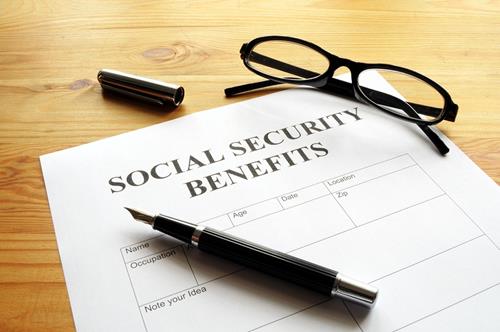8 Feb
Will My Social Security and Medicaid Benefits Be Affected by a Personal Injury Settlement?
Florida Law Group Personal Injury

Millions of Americans receive Social Security benefits. They may be eligible because of their age, employment status, disability, or income level. For example, Social Security Disability Insurance (SSDI) provides benefits for people with disabilities, while Supplemental Security Income (SSI) provides benefits for people below a specific income threshold.
When a person with Social Security benefits or Medicaid coverage becomes a personal injury victim, the impact a settlement may have will depend on specific facts. It is important to understand the various types of benefits, including SSDI and SSI, to know how they may be affected by a personal injury settlement.
Understanding SSDI and SSI
SSDI benefits are earned, and paid to persons with long-term or permanent disabilities. As these benefits are earned by work credits they are not usually impacted by a personal injury settlement.
SSI benefits are paid to low-income persons, and may be used to supplement SSDI benefits. Beneficiaries of SSI must have a demonstrable financial need for their benefits. Therefore, anyone who receives an SSI monthly payment is obligated to report all income, assets, and any monies received as part of a personal injury settlement.
Qualifying changes to income may affect SSI benefit payment amounts. That means beneficiaries who receive a single check combining SSDI and SSI benefits may see a change to monthly benefits after a personal injury settlement.
Medicaid and Personal Injury Settlements
Medicaid is a state and federal program that provides health coverage to very low-income persons.
Any person with Medicaid who has been injured as a result of negligence by a third-party may be required to assign rights to payments for medical care damages to the state. While Medicaid may place a lien on a future settlement, it will continue to pay for the victim’s medical bills as long as they are undergoing treatment.
In cases where someone was injured but they opted not to file a personal injury claim, the state may do so to recover payments made by Medicaid for their medical care.
Disability and Personal Injury Claims
Persons with disabilities have equal rights to file a personal injury claim if they have been injured by the negligence or recklessness of someone else. When a person with a disability is unable or unwilling to file a claim, Medicaid may do so to collect medical expenses paid on the victim’s behalf.
Get Help From the Florida Law Group Today
If you receive SSDI, SSI, or Medicaid benefits and you have been injured through no fault of your own, speak to an experienced personal injury attorney as soon possible. A lawyer may be able to review all of your benefits, analyze how they may be impacted by a settlement or award for damages, and advise you of all available options to protect your rights.
Contact the lawyers at The Florida Law Group at (833) 899-0310 or online to schedule a free consultation and learn if we may be able to help you.
Millions of Americans receive Social Security benefits. They may be eligible because of their age, employment status, disability, or income level. For example, Social Security Disability Insurance (SSDI) provides benefits for people with disabilities, while Supplemental Security Income (SSI) provides benefits for people below a specific income threshold.
When a person with Social Security benefits or Medicaid coverage becomes a personal injury victim, the impact a settlement may have will depend on specific facts. It is important to understand the various types of benefits, including SSDI and SSI, to know how they may be affected by a personal injury settlement.
Understanding SSDI and SSI
SSDI benefits are earned, and paid to persons with long-term or permanent disabilities. As these benefits are earned by work credits they are not usually impacted by a personal injury settlement.
SSI benefits are paid to low-income persons, and may be used to supplement SSDI benefits. Beneficiaries of SSI must have a demonstrable financial need for their benefits. Therefore, anyone who receives an SSI monthly payment is obligated to report all income, assets, and any monies received as part of a personal injury settlement.
Qualifying changes to income may affect SSI benefit payment amounts. That means beneficiaries who receive a single check combining SSDI and SSI benefits may see a change to monthly benefits after a personal injury settlement.
Medicaid and Personal Injury Settlements
Medicaid is a state and federal program that provides health coverage to very low-income persons.
Any person with Medicaid who has been injured as a result of negligence by a third-party may be required to assign rights to payments for medical care damages to the state. While Medicaid may place a lien on a future settlement, it will continue to pay for the victim’s medical bills as long as they are undergoing treatment.
In cases where someone was injured but they opted not to file a personal injury claim, the state may do so to recover payments made by Medicaid for their medical care.
Disability and Personal Injury Claims
Persons with disabilities have equal rights to file a personal injury claim if they have been injured by the negligence or recklessness of someone else. When a person with a disability is unable or unwilling to file a claim, Medicaid may do so to collect medical expenses paid on the victim’s behalf.
Get Help From the Florida Law Group Today
If you receive SSDI, SSI, or Medicaid benefits and you have been injured through no fault of your own, speak to an experienced personal injury attorney as soon possible. A lawyer may be able to review all of your benefits, analyze how they may be impacted by a settlement or award for damages, and advise you of all available options to protect your rights.
Contact the lawyers at The Florida Law Group at (833) 899-0310 or online to schedule a free consultation and learn if we may be able to help you.

